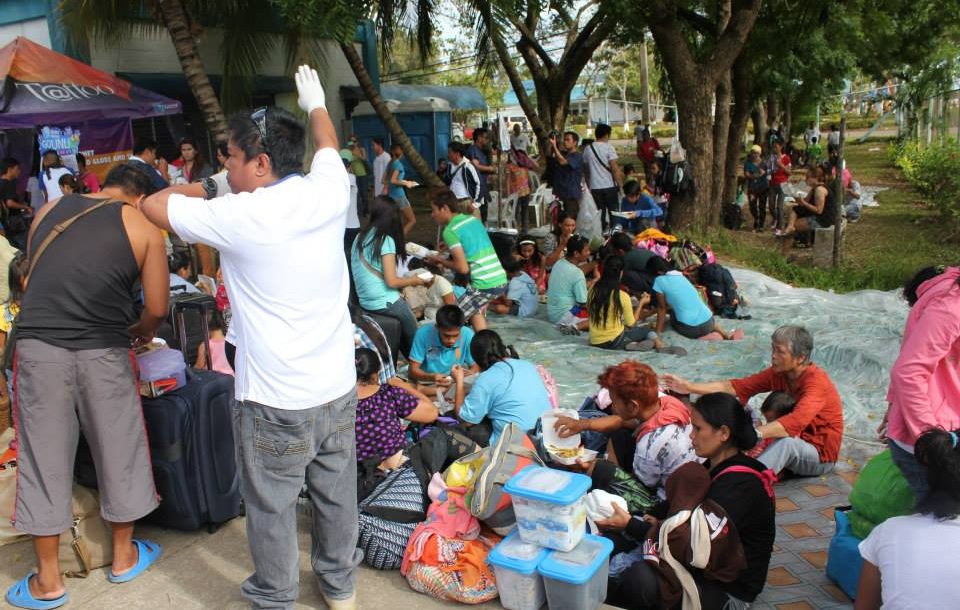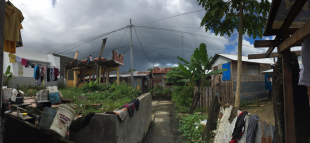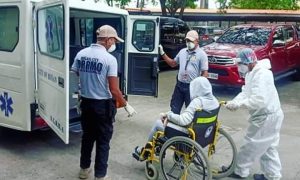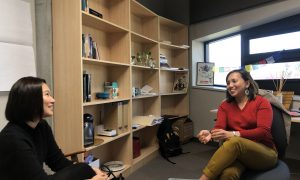With over 2.8 million confirmed cases and 50,341 deaths from COVID-19, the Philippines is suffering one of the worst outbreaks in Southeast Asia. However, despite its dire situation, the country has been made to wait for vaccines from rich and vaccine-producing countries. Indeed, only 38% of the population is fully vaccinated against the virus in comparison to 78% of Canadians.
The vaccine gap is exacerbated by misinformation about vaccines, fake news about COVID-19 and low vaccine literacy in lower income countries. According to WHO, we are currently living in an “infodemic” – a spread of too much information during a disease outbreak, including false and misleading information, which can lead to confusion and risky behaviours that can harm one’s health (such as by not getting vaccinated).
The Philippines is no stranger to these phenomena.
The Philippines also has a major problem with vaccine hesitancy which is slowing down vaccination drives in many localities. Numerous factors have been suggested to explain vaccine hesitancy in the country, ranging from the national government’s inconsistent messaging about the severity of the pandemic, widespread misinformation, the novelty of the vaccine, and a vaccine scandal linked to the deaths of hundreds of children in 2016. Ultimately, as public health advocate Senator Risa Hontiveros articulated, vaccine hesitancy is indicative of the national government’s failure to build public confidence in the vaccination program.
Vaccine Hesitancy Thrives in Tacloban City’s Resettlement Sites
Vaccine hesitancy is especially harmful for the most marginalised groups in the Philippines.
One such group are the over 75,000 residents who live in resettlement sites in Tacloban City, homes that were built for hundreds of thousands internally displaced people (IDPs) after Typhoon Haiyan hit the country in 2013. Due to their living conditions and livelihoods, residents are extremely vulnerable to getting COVID-19. Indeed, a June 2021 study on the impact of COVID-19 on 357 households in the resettlement sites found that many residents have received insufficient financial assistance from the national government, lack running water in their homes, and are putting themselves in harm’s way in order to maintain an income (which generally must be done in-person) during the pandemic. They also often live in tight living spaces with multiple generations of family members. It is therefore imperative that residents of resettlement sites get vaccinated. Unfortunately, the study also found high levels of vaccine hesitancy among residents.
Around 95% of participants were not yet vaccinated and of those participants, nearly 25% said they would not get vaccinated even when given the opportunity to do so. At that time, only 4% of the Philippines’ population of 110 million people had received at least one dose and only 1.4% had received a second dose of a COVID-19 vaccine. The top concerns of the participants included lack of trust in the vaccine, its possible side effects, and its unknown future effects. One resident said they were “scared of the fatal side effects as seen online” while another was “worried of vaccine compatibility with [their] current health condition.” These answers reveal low vaccine literacy and encounters with misinformation. Indeed, 73% of participants believe they have come across fake news on COVID-19 and 30% said they received COVID-related information from social media where misinformation has been rampant, particularly from “medical influencers”, including doctors, advocating for solutions to “prevent” COVID that are not supported by science.
Happy-washing: how a ‘happiness campaign’ hurts disaster survivors
Tacloban's new tourism campaign is a coverup of five years of post-Yolanda devastation.
Meanwhile only 1 participant said they relied on the national government for information on COVID-19. Another participant noted “the government should create [an] awareness program for people not to be scared of getting a vaccine shot”, highlighting the government’s insufficient role in building confidence in the vaccine and dispelling misnformation.
Implications of Findings
Vaccine hesitancy is not simply the result of individual ignorance. As the results show, insufficient efforts by the government to relay information about COVID-19 and build trust in vaccines, in conjunction with exposure to widespread misinformation, have fuelled vaccine hesitancy.
These findings may also reflect a lack of trust in the national government, especially among poorer communities, to protect people during the pandemic. Indeed, the study found that very few participants felt that they could rely on the national government to protect them from COVID-19. This is not too surprising considering that the country was put through one of the strictest lockdowns in the worlddid not prevent cases from rising many of whom work in the informal sector and receive insufficient financial assistance from the government, were shamed and arrested as “pasaway” or lockdown violators.
Nevertheless, according to a recent survey, Filipinos’ willingness to get vaccinated has risen from 16% in February 2021 to 43% in June. As vaccination becomes more normalised and widespread, as well as the rise of new variants, people are perhaps becoming less vaccine hesitant.
All in all, vaccine hesitancy is an issue rooted in institutional failure and must be targeted with institutional solutions. The national government must actively carry out public health campaigns to inform locals about the vaccine and dispel misinformation as well as support local governments (which have been made largely responsible for the pandemic response despite their weak health infrastructures) to carry out an efficient, accessible and equitable vaccine drive.
This research was funded by the Social Science and Humanities Research Council.
 Facebook
Facebook  Twitter
Twitter  Soundcloud
Soundcloud  Youtube
Youtube  Rss
Rss 



